- Home
- Thomas H. Cook
Mortal Memory Page 8
Mortal Memory Read online
Page 8
“Why not?” Rebecca asked.
“Because so much is going on,” I said. “In the family, I mean. Surely someone has to sense it.”
Rebecca looked at me squarely. “Did you?” “No.”
“Did Laura or Jamie?”
It was odd to hear their names again, to hear them spoken of as if they once had actually existed, had lived and observed the life around them, rather than simply as the faceless victims of my father’s crime.
I shook my head slowly. “I don’t think so.”
“And your mother?”
It was strange, but at that moment, I suddenly suspected that somehow, through all the mists that must have clouded and thwarted and befuddled her, “poor Dottie” must have known that my father was approaching some dreadful line, and that if he crossed it, he might kill us all.
“She might have known,” I said quietly.
“What makes you think so?”
A memory invaded me, and I recalled how often she’d gone off to her bedroom, closed the door and remained there for hours, as if locking herself away from him, from us, from whatever it was she could feel heating the air inside the little mock Tudor house on McDonald Drive.
“She spent a lot of time in the bedroom,” I told Rebecca.
Even as I said it, I wondered what dreadful possibilities my mother might have envisioned while she lay alone on her bed. In her mind, had she ever seen him coming up the stairs, the shotgun in his hand? And if she had glimpsed such a thing, had she ever considered packing us into the car and taking us away before it was too late?
“But if she did suspect something,” I said, “she didn’t do anything about it.”
Except to let us drift, I thought with a sudden bitterness, let us slide into destruction because she was unable to summon up even enough will to throw off her red housedress, gather us into the station wagon, and take us away from him.
As all of this swept over me, I found that I suddenly blamed my mother as much as, maybe even more than, I blamed my father. The cool rancor and cruelty of my next remark amazed me.
“My mother was very weak,” I said. “She was a nothing. She could have left him, but she didn’t.”
“Had he ever been violent with her?” Rebecca asked.
“No.”
“With any of you?”
“No, never,” I said. “He would sometimes get irritated. Especially with Jamie. But he never raised his hand against any of us.”
To my surprise, Rebecca didn’t ask any more questions. Instead, she simply handed me another envelope.
“This is the last one,” she said.
I took the envelope from her and read it quietly.
Hollis Donald Townsend. Age, forty-four.
On July 12, 1961, Hollis Townsend, a certified public accountant and avid foreign-stamp collector who lived and worked in Phoenix, Arizona, returned with his family from a two-week vacation at Yellowstone National Park. A neighbor, Sally Miller, who came out to welcome them back, placed the time at 3:35 P.M. For the next few minutes, while Hollis Town-send unpacked the car, she spoke to his wife, Mary Townsend, thirty-seven. During this brief time, as she later told police, the Townsend children, Karen, five, and Sheila, eight, had played with the family dog, a large collie named Samson.
Nearly nine hours later, at around midnight, Mrs. Miller was awakened by a single shot, followed rapidly by two others. She rose, walked to her window, glanced out, and saw Hollis Townsend as he stepped out of the house, turned left, and headed for the garage. He had a large suitcase, one which appeared to be very heavy, since Townsend needed both hands to drag, rather than carry, it across the lawn. He was dressed in the same beige trousers and short-sleeved knit shirt he’d been wearing earlier in the day, an indication that he had not gone to bed, although, as Mrs. Miller told police, all the lights in the house had been off for more than two hours.
What had he done in that darkness?
Rebecca’s summation gave a short but graphic answer. For one thing, he’d written several letters, all of which he’d eventually thrown into the kitchen wastebasket. The letters, written in Townsend’s pinched script, alluded to an “inadequacy” which he had to face, the inadequacy, as he put it, “of life, of what I can’t find in it somehow.”
At some other point during the night, Townsend had poured gasoline in every room in the house, drenching carpets and furniture, and leaving a trail which began in the kitchen, then led through the rooms on the ground floor before heading up the stairs to where his family lay sleeping obliviously. At the last moment, however, he had not lit a match, but had simply dragged his enormous suitcase out across the lawn, leaving the house intact behind him, the bodies of his wife and two children still lying in their own beds.
Each had been shot one time. Karen and Sheila had been shot in the back of the head, Mary through the forehead, presumably because, unlike her daughters, she slept on her back rather than her stomach.
Only two photographs were attached. The first showed Hollis Townsend beside the family swimming pool. He was wearing only a bathing suit, and he appeared to be beating his breasts comically, in a mocking imitation of Tarzan.
The second photograph was of Mary Townsend. She was kneeling down, her arms around her small daughters. It was a picture that had undoubtedly been taken during the family vacation at Yellowstone. Old Faithful, the park’s most famous geyser, could be seen exploding from a cloud of steam behind them.
Without comment, I returned the summation and photographs to their envelope and handed it to Rebecca. She took them from my hand, placed them in her briefcase.
“I think that’s enough for tonight,” she said abruptly.
I was surprised. “I have more time,” I told her.
She began to gather her things together. “I’d rather start fresh next time,” she said. The questions I want to ask you would take a long time to answer, and I’d rather not go into them now.” She closed the briefcase and started to rise.
I touched her hand. “Why my father?” I asked. “Why did you pick him?”
She drew her hand away from mine, leaned back slightly, and gave me her reasons so smoothly and matter-of-factly that she seemed to be quoting a long passage she’d written beforehand.
“Well, all the cases you’ve read about have a few things in common,” she said. “None of them had serious money problems. None of them had medical problems. None of them had lovers. There were no ‘other women’ in their lives. All of them committed their murders in their family homes. All of them had planned the murders before-hand. Nothing about them was sudden or impulsive. These were not acts of rage. The killings were quick and clean.”
She paused, as if waiting for a question, then went on when I simply watched her silently.
“And last, these men all tried to escape,” she said. They didn’t kill themselves, as some family murderers do. They tried to get away instead, to escape. None of them succeeded, except, of course, your father.”
As if in a sudden vision, I saw him. Through the rain, his hat pulled down, water dripping from its sagging brim, I saw my father move toward the family car, saw him as Mrs. Hamilton must have seen him, her eyes peering toward the street from behind the blue curtains that hung from her living room window.
“Yes, he did succeed in that,” I said. I smiled ironically. “He would be an old man now.”
Rebecca nodded, a small green leaf brushing against the side of her face.
“An old man,” I repeated, though without emphasis, a simple mathematical determination. The others swam into my mind, Fuller, Stringer, and the rest.
“What are you looking for in these men?” I asked.
The question appeared to sink into her face like a dye.
“I want to find out what it was in life that they couldn’t bear,” she said.
“And because of that, killed their families?”
“Yes.”
I looked at her, puzzled. “And you think that in each of them it
was the same thing?”
She peered closely into my eyes, as if trying to gauge what my response might be to her next remark. “The same thing,” she said finally, “in almost every man.”
I was still going over that peculiar remark when I got home a few minutes later. It was still early, and Peter was in the small family room watching some sort of situation comedy on television.
“Where’s your mother?” I asked him as I strolled into the room.
“In her office.”
“Did you have dinner?”
“She fixed one of those cheese things.”
I walked out of the room, down a short corridor, and opened the door to Marie’s office. She looked up, startled.
“Please don’t do that, Steve,” she said.
“Do what?”
“Come in like that. Through the door all of a sudden.”
I laughed mockingly. “What do you think I am, Marie, some crazed axe murderer?”
She did not seem amused. She went back to her work without saying anything else.
I remained at the door, looking at her. She was typing something at her computer, something that was probably businesslike, but uninspired, a bid for the job in Bridgeport, I supposed, a banal proposal for interior design. I compared it to the project upon which Rebecca had embarked, a far more profound investigation of a far deeper interior. Marie’s work seemed small and inconsequential compared to that, scarcely more than the busywork of a life that had settled for too little, a life that had been lived … like mine.
Without warning, an odd sense of desolation suddenly overwhelmed me, and I left Marie to her work, walked to the kitchen, snatched the cheese thing from the refrigerator, and ate it pleasurelessly at the dining room table.
When I’d finished, I returned to the family room. Peter was still watching television, and for a few minutes I watched along with him, an action picture of some sort, all car chases and shattering glass.
He went to bed at ten, without speaking, a slender figure in red pajamas padding up the carpeted stairs to a room he had come to consider as his private domain, and which his mother and I had been forbidden to enter without permission.
I remained in the family room, my mind in a kind of featureless limbo until Rebecca’s final remark came back into my mind, and I began to think over the cases she’d written about. I saw Harold Fuller leaning on his baseball bat, Gerald Stringer sitting rigidly upright in his big recliner, Herbert Parks slowly walking his two daughters hand-in-hand back into the house, Hollis Townsend beating his breasts beside the bright blue pool. What was it in any of these men that so fascinated her?
Finally, inevitably, I thought about my father, too, asking the same questions I thought Rebecca must be asking: Who was he? Why did he do it? From what dark, volcanic core had so much murder come?
At that early stage, I couldn’t have answered any of these questions. Still, I felt the urge to pursue them, to press on toward finding some kind of solution to the mystery of my father’s crime. Certainly, part of that urge came from Rebecca, but part of it also came from me, the need to touch the center of something, to reach the final depth … no matter where it lay.
SIX
“STEVE, IT’S SEVEN-THIRTY.”
It was Marie calling from downstairs.
I got up slowly, showered, and dressed.
Marie and Peter were seated at the breakfast table. Peter was chattering on about some atrocity his teacher had committed against another student. As he talked, Marie watched him quietly, nodding from time to time as she chewed a final bit of toast.
When Peter had finished, we all fell silent, and after a moment, I found myself remembering those other family breakfasts I’d had so long ago at the little oval-shaped Formica table on McDonald Drive. Often, we’d all fallen silent, too, sitting for long stretches in a gloomy quiet. But it was not a moment like that which came back to me. Instead it was one of those rare occasions when my father and Laura, normally so withdrawn from the rest of us, had talked quite openly at the breakfast table, chatting with a rare spiritedness and candor, as if they were alone.
Laura had begun it, talking about some report she’d been working on in her geography class. It had had to do with an Oriental country. I don’t remember the particular place, but only that my sister had spoken almost mystically about the beauty of the land, the strangeness of the people, all those bizarre landscapes and customs which would have fascinated any sixteen-year-old girl as high-strung and curious as Laura.
In any event, she’d finished by saying that she intended to go there at some point in her life, an ambition, as I noticed, which had spontaneously and very powerfully appealed to my father. As much as I ever saw his love pour out to her, I saw it at that moment in the little kitchen. It was a look of unqualified admiration, but a look that also seemed a kind of plea that she hold forever to this longing for distant things and lost, mysterious places.
Jamie saw it, too, however, and something in it infuriated him.
“You’re never going anywhere,” he sneered at Laura. “Who do you think you are, some kind of princess?”
Laura glared at him angrily. “Oh, shut up, Jamie,” she snapped.
“Just big ideas, that’s all,” Jamie fired back. “You’re not going anywhere.”
“I said, shut up, Jamie,” Laura screamed, “just shut up.”
It continued in this way for some time, both Jamie and Laura growing hotter by the minute, my mother lamely attempting to quell the riot, but with her usual lack of force.
I don’t know exactly at what point I became aware that my father had left the room. I hadn’t seen him rise, walk around the table, and disappear into some other part of the house. It was as if he’d simply vanished.
The battle continued in his absence, growing more furious and abusive by the moment. My mother left after a time, coughing slightly, as if escaping from a smoke-filled room. I remained in my seat, of course, watching the battle like a child, fascinated by the flames. I was still there when it died away suddenly, and both Laura and Jamie moved out into the open air, Jamie to the basketball hoop, Laura to a chair in the backyard.
Later, coming from the upstairs bathroom, I glimpsed my mother as she lay on her back in the bed, one hand at her side, the other balanced palm up on her forehead, as if she were wiping a line of sweat from her brow.
A terrible silence had descended upon the house by then, one which no one seemed willing to break, as if this sullen, unhappy peace was the only kind of quiet we could know. I remember that in order not to break it, I had actually tiptoed down the stairs.
I was near the bottom of them when I saw my father sitting alone in the solarium. His legs stretched out before him, his arms hanging limply at his sides, he no longer looked like that commanding figure who’d once stepped out onto the balcony and brought all of us to attention.
At that point I might have thought him broken, I suppose, a pitiful shell in gray work clothes, but suddenly he looked over at me, and the man I saw was not weak, nor timid, nor lacking in resolve. Rather, he seemed to smolder with a strangely building purpose, the eyes small, intense, deeply engaged, the jaw firmly set. It was a face I’d seen in old cowboy movies, a man about to draw.
Now, as I sat in the silence of my own kitchen, my eyes moving slowly from Peter to Marie, I wondered if it was at that precise moment that my father had decided that he would bear no more, that he would kill us all.
“These men,” Rebecca would later write, “shouldered all they had been taught to shoulder, until their shoulders broke.”
Until their shoulders broke, and they reached for the pistol, the baseball bat, the pellets encrusted with cyanide. Until their shoulders broke, and they stood on the third step and followed the little watery footprints as they led toward the empty cardboard box … and fired.
Or was it only the slow wearing away she wanted to explore, the long descent toward that explosive second when the shoulders cracked and the savagery began?<
br />
“What are you thinking about, Steve?”
I glanced toward Marie. “What?”
“You looked like you were thinking about something.”
“Just something at work,” I said.
Marie took me at my word and didn’t press the matter. She went back to her breakfast, and after finishing it, walked upstairs to finish dressing.
I walked to my car and drove to work. Wally was leaning against my desk when I arrived. He handed me a note.
“Phone message,” he said with a leering grin.
I glanced at the message: “Call Rebecca,” and then a number.
“Thanks,” I said to Wally, as I pocketed the note and slid in behind my desk.
Wally continued to stare at me knowingly. “So, is she a nice woman, Steve?” he asked with a quick wink.
“Very,” I told him, but without emphasis, in the same way I might have said it of a business acquaintance.
Wally grinned. “Glad to hear it,” he said, then walked away.
I dialed the number, and Rebecca answered the phone right away. “Hello.”
“It’s me.”
“Who?”
“Steve Farris.”
“Oh, Steve, thanks for calling,” she said. “Listen, I was wondering if we might meet again this Friday.”
For the first time, I felt the pull of her voice as something alluring.
“I suppose so.”
“The same place? Around five?”
“Okay.”
Rebecca thanked me, then hung up. I went back to my work, but even as I continued sketching the design for the Massachusetts library, I felt both Rebecca and the task she had set herself lingering in the air around me. It gave a peculiar energy to my thoughts, a direction that hadn’t been there before. It was as if, before Rebecca, a space had existed in my mind, empty and featureless, but which I had always felt as an odd, persistent ache. And so, as the days passed, and I went through the routine of work and home, I looked forward to my meeting with Rebecca as a wounded man might have looked forward to the first soothing touch of a doctor or a nurse.
I was relieved to see her when she arrived that Friday afternoon.

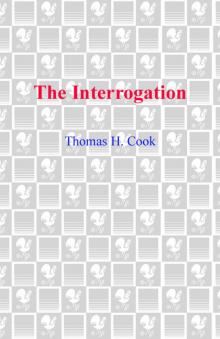 The Interrogation
The Interrogation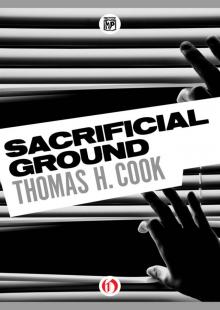 Sacrificial Ground
Sacrificial Ground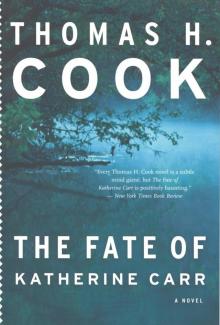 The Fate of Katherine Carr
The Fate of Katherine Carr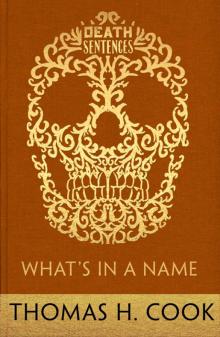 What's In A Name
What's In A Name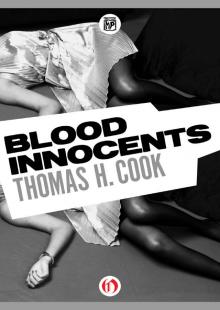 Blood Innocents
Blood Innocents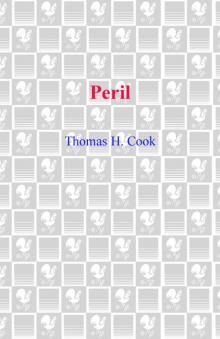 Peril
Peril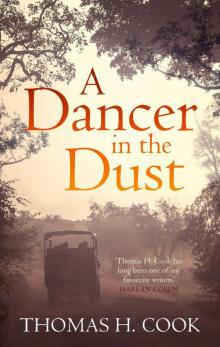 A Dancer In the Dust
A Dancer In the Dust Breakheart Hill
Breakheart Hill The Chatham School Affair
The Chatham School Affair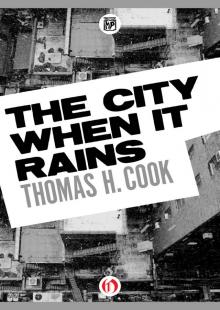 The City When It Rains
The City When It Rains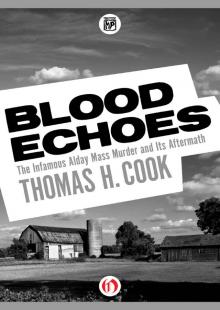 Blood Echoes
Blood Echoes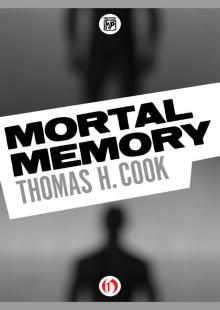 Mortal Memory
Mortal Memory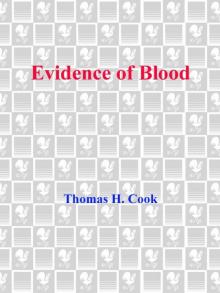 Evidence of Blood
Evidence of Blood Into the Web
Into the Web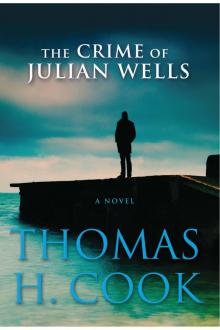 The Crime of Julian Wells
The Crime of Julian Wells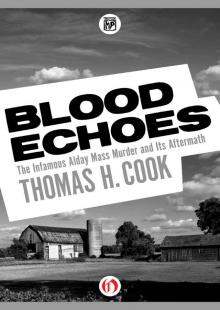 Blood Echoes: The Infamous Alday Mass Murder and Its Aftermath
Blood Echoes: The Infamous Alday Mass Murder and Its Aftermath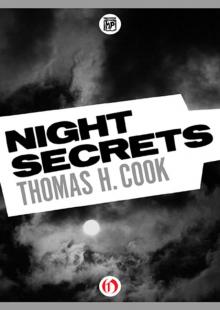 Night Secrets
Night Secrets Places in the Dark
Places in the Dark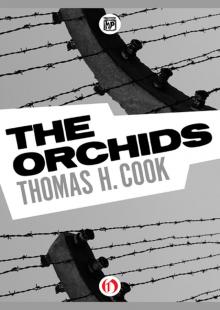 The Orchids
The Orchids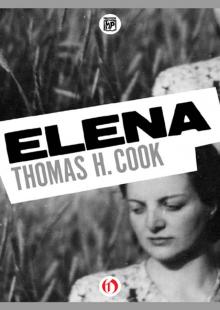 Elena
Elena Streets of Fire
Streets of Fire Instruments of Night
Instruments of Night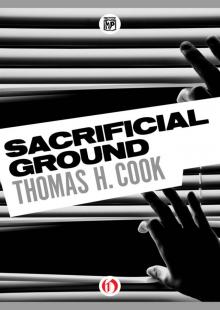 Sacrificial Ground fc-1
Sacrificial Ground fc-1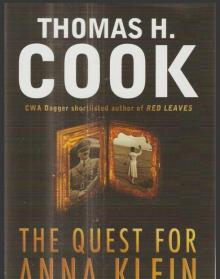 The Quest for Anna Klein
The Quest for Anna Klein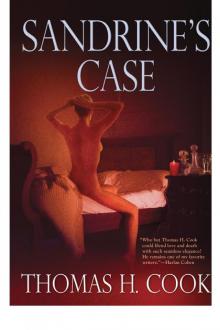 Sandrine's Case
Sandrine's Case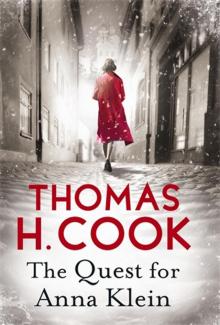 Quest for Anna Klein, The
Quest for Anna Klein, The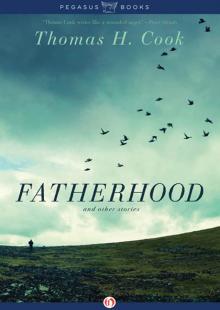 Fatherhood
Fatherhood Flesh and Blood
Flesh and Blood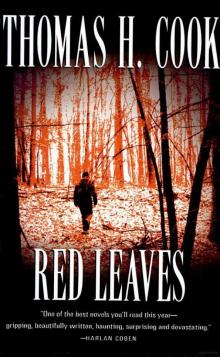 Red Leaves
Red Leaves